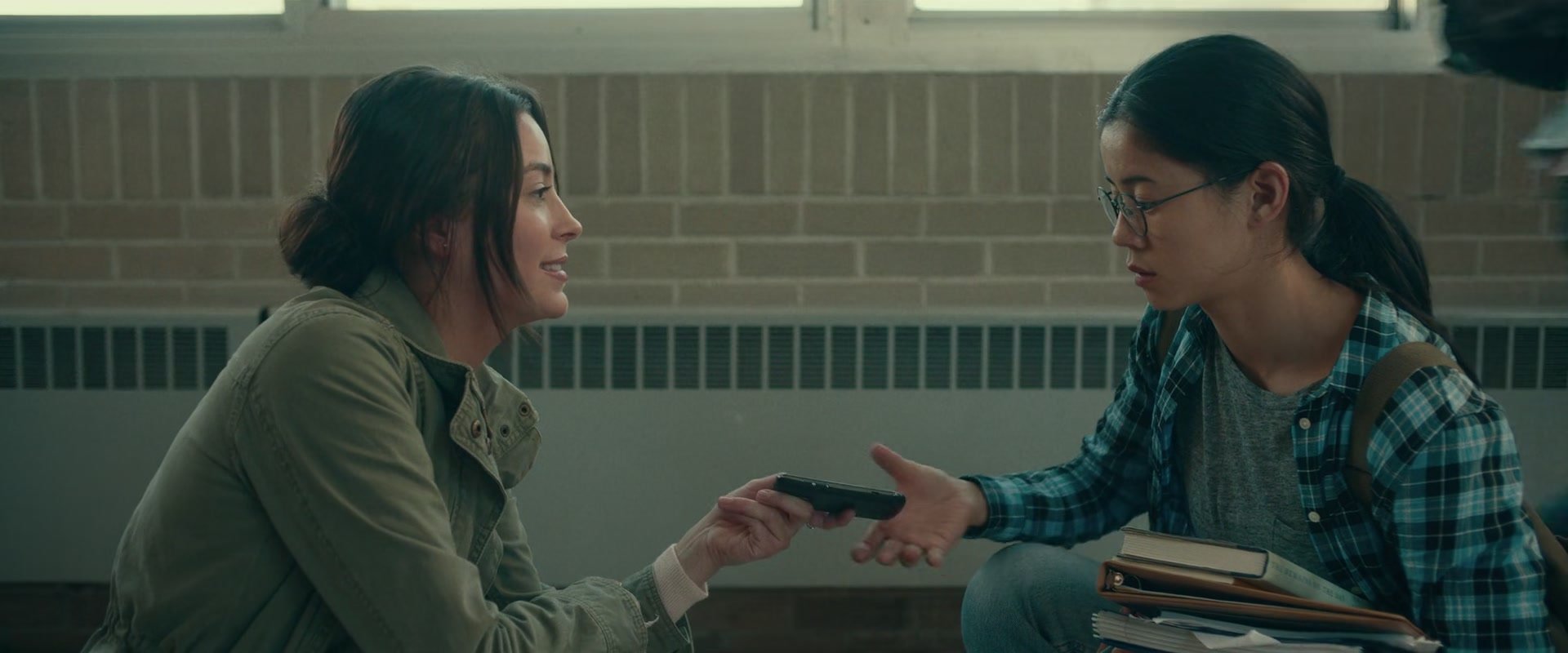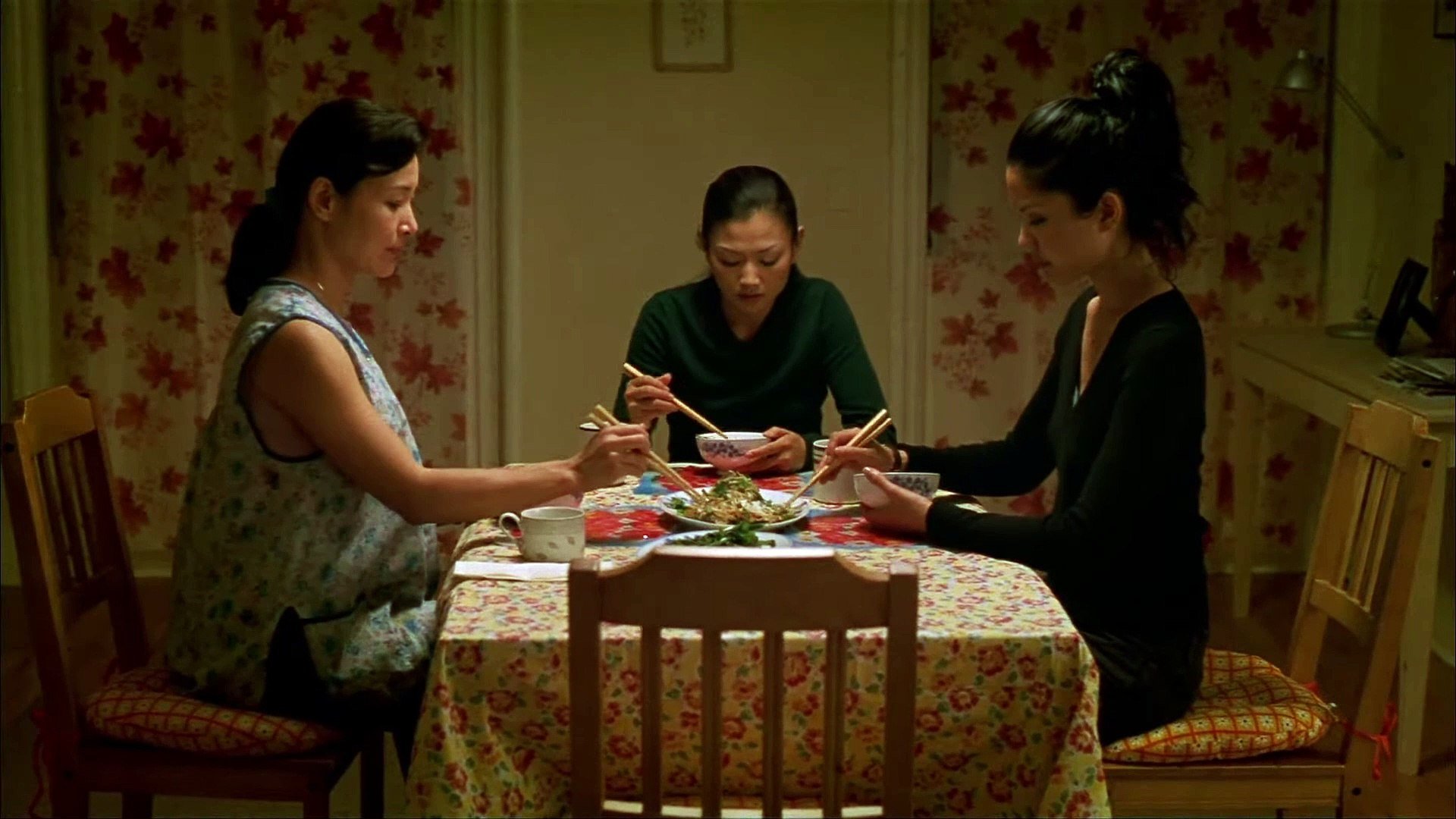Into Alice Wu's World of Chinese Lesbian Diaspora
By Lorena Horng
Alice Wu, director of 2004’s Saving Face and 2020’s The Half of It, possesses a particularly short filmography. Having directed only two movies, both of which are romantic comedies, Wu’s productions are often overlooked by prominent critics and casual viewers alike — many of whom dismiss her movies as fun, but trivial. Her first film, Saving Face, was frequently criticized for its idealistic and fairytale-like ending. The Half of It — her more recent film, released 16 years later — faced the opposite critique as a result of not delivering the happy, “gay” ending that its promotional materials attempted to sell. Praise for Wu’s films often signal towards the consistent representation of Chinese characters and culture, or the unambiguous depiction of LGBT characters and couples. For Chinese-American lesbians, though, Wu’s films go beyond external portrayals of representation to examine, comprehend and accept the coexistence of two dissonant aspects of our identity: heritage and sexuality.
To the Chinese diaspora, strong inter-community relationships are not just culturally fundamental — they act as tight barriers of security and protection from an unfamiliar, unforgiving white society. In Saving Face, protagonist Wilhelmina “Wil” Pang (Michelle Kruseic) is left in disbelief after a coworker claims to have run into Wil’s mother at the clinic. “My mom?” Wil proceeds to exclaim. “Nah, nah. She never leaves Flushing.” Vivian Shing (Lynn Chen), Wil’s girlfriend, replies in a similar way when Wil suggests that Vivian’s mother — who consistently faces ostracization from the Flushing community for getting a divorce — leaves Flushing. “Where would she go?” Wil asks. Vivian’s mother, rather than risk unfamiliarity, personal safety, or racist ridicule in predominantly white or Asian minority spaces, chooses instead to endure exclusion from her own community.
Community ostracization may be difficult to bear, but such rejection is often localized to a small area (like Flushing). Oppression by a white majority is both deep-rooted and wide-spread, almost impossible to avoid without the security of a community. In The Half of It, protagonist Ellie Chu and her father live in a small, primarily white town, a commonplace throughout the majority of the United States. On the surface, the fictional town of Squahamish looks quaint and charming, populated by old diners and the lush forests lining the outskirts. But underneath, Ellie and her father are lonely and othered for being one of the only immigrant families, left feeling a quiet sort of suffocation that stems from being simultaneously humiliated and unnoticed by the rest of the town.
Despite Ellie’s and her father’s best efforts to connect with their heritage — including biking three odd hours to the nearest Asian Mart, stockpiling Yakult from the school’s vending machine, or hand kneading dumplings almost daily — their “otherness” remains a burden rather than a point of pride. Ellie and her father largely keep to themselves, staying close to a structured routine and avoiding interactions with the rest of the town. Even then, Ellie struggles to escape the racism she faces, constantly fending off racially motivated taunts and microaggressions from peers.
The necessity, therefore, for the Chinese Lesbian diaspora to prioritize our responsibilities to the cultural community over our individual identities (such as our often dissonant sexuality) originates from a need to feel personally safe and secure. When Vivian quips about wanting to meet Wil’s mother, Wil laughs at the absurdity of the statement, exclaiming profusely how “that’ll never happen (thank god).” Vivian proceeds to insist a second time, offering to be introduced as a “nice Chinese girl” to Wil’s mother, forcing herself back into the closet to form even a semblance of a relationship with Wil’s family. Similarly, Ellie is seen rejecting her teacher’s encouragement to apply to Grinnell College — an opportunity that would allow Ellie to branch away from her stifling, white town — in favor of remaining at home with her father.
What makes Wu’s films so meaningful to Chinese Lesbian diaspora is her capacity to portray a possibility where both our cultural and sexual identities can simultaneously co-exist in an achievable manner. Her depiction of Vivian’s family as having already accepted their daughter’s sexuality, no questions asked, sets a prime example for the appropriate attitude Chinese parents should adopt. Though Ellie’s father is unaware of her sexuality, his easy acceptance and understanding of Ellie is apparent in his quiet yet protective parenting tactics. And though Wil’s mother’s turnaround to her own daughter’s sexuality might seem too quick or extreme for some, her own unconventional romantic relationship allows her to empathize a little more with her daughter’s experience.
Wu’s compassionately intertwines all these hefty, meaningful experiences within layers of comedy, romance and pure unadulterated familial and platonic love, making her films simultaneously specific towards a distinct audience and universal to the broader movie appreciators who will consume her work. In general, Wu’s films have been characterized as “likable” by the wider audience, who — no matter the demographic — are able to take something away from her movies. To the specific audience she targets, her own community of Chinese-American Lesbians, we are rewarded with films that both represent and understand our lives, experiences and identities. ♦



